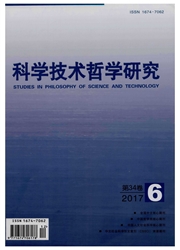

 中文摘要:
中文摘要:
国内学者对“科学与伦理”问题的考量局限于科学的外围或者发现的语境(如问题的选择、成果的应用),这种研究路径根源于20世纪60年代科学哲学的专业化、去政治化、纯认识论化,进而将伦理价值从辩护的语境中剔除出去。然而,自20世纪80年代以来,随着学术研究日益的商品化,科学的内涵发生重大转变,经济利益贯穿科学研究的整个过程,包括科学的内核(如数据的选择、方法的设定、结果的评价),由此便衍生出更多的伦理问题,伦理价值涉入科学内核。在上述语境下,科学哲学要想发挥其应有的解释力与规范性,则必须拓展传统科学哲学的合理性概念,关注认知与价值(政治、经济、伦理价值等)双重向度。
 英文摘要:
英文摘要:
Concerning science and ethics, domestic scholars are mainly limited to the outside of science or the context of discovery ( such as the choice of problems, the application of results). This research approach results from the professional, apolitical and purely epistemological philosophy of science in the 1960s, which removes ethical values from the context of justification. However, the connotation of science has changed dramatically with the com- modification of academic research since 1980s. Economic benefits permeate into the whole process of scientific re- search, including the core of science ( such as the selection of data, the setting of methods, the evaluation of re- suits), as a result, ethical issues become more evident and ethical values should play a legitimate role even at the core of science. In the above - mentioned conditions, philosophy of science must expand its traditional concept of rationality and focus on the dual dimension of cognition and value ( political, economic and ethical values, etc. ) in order to maintain its explanatory power and normative effect.
 同期刊论文项目
同期刊论文项目
 同项目期刊论文
同项目期刊论文
 期刊信息
期刊信息
